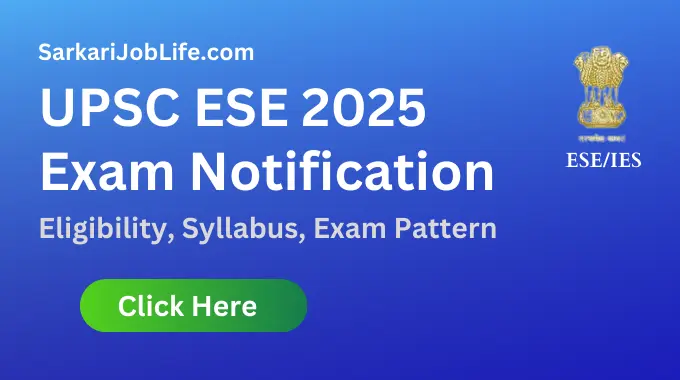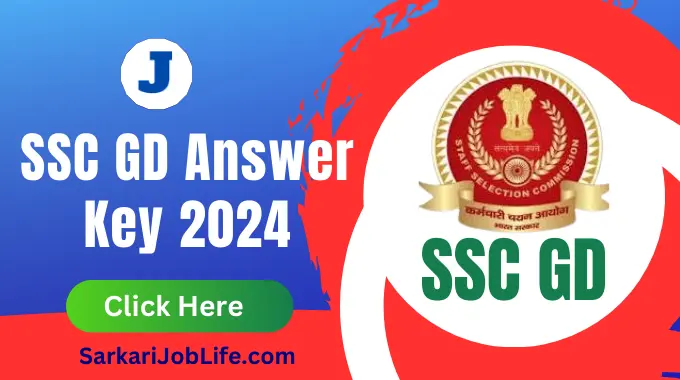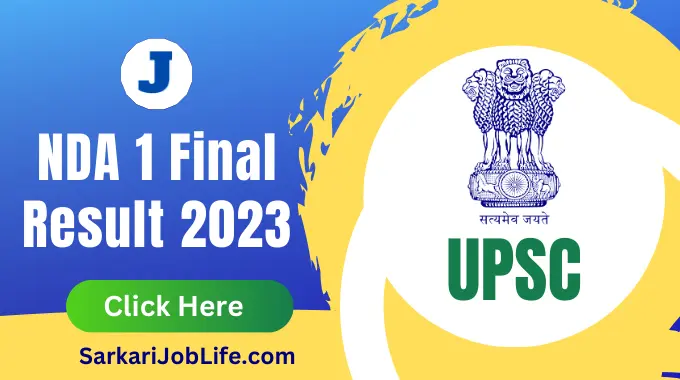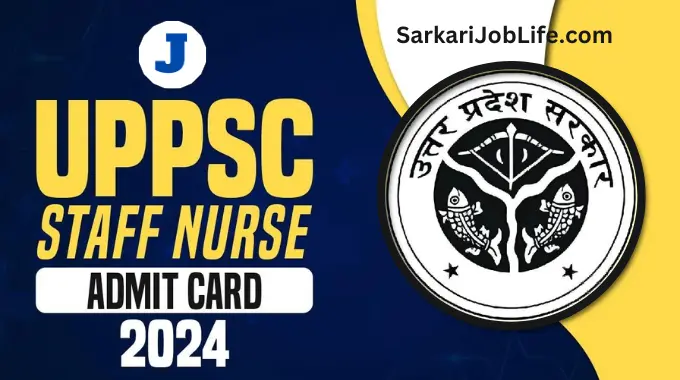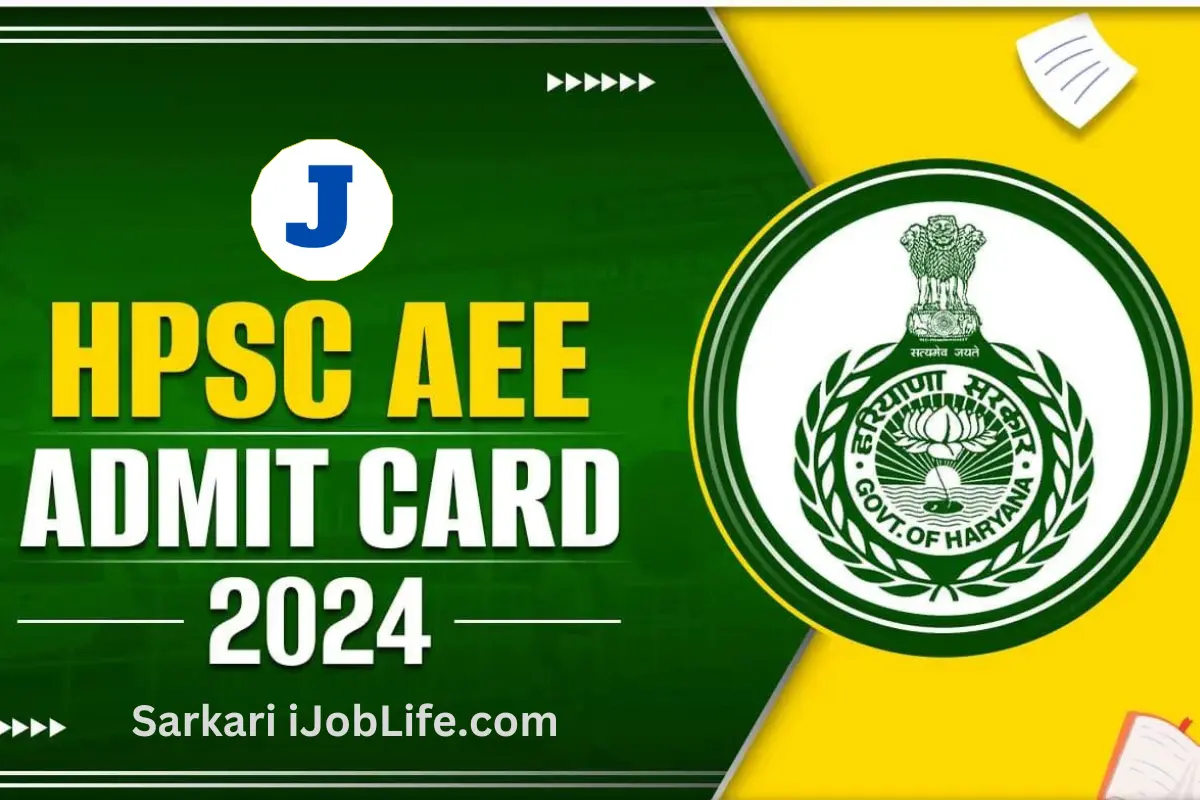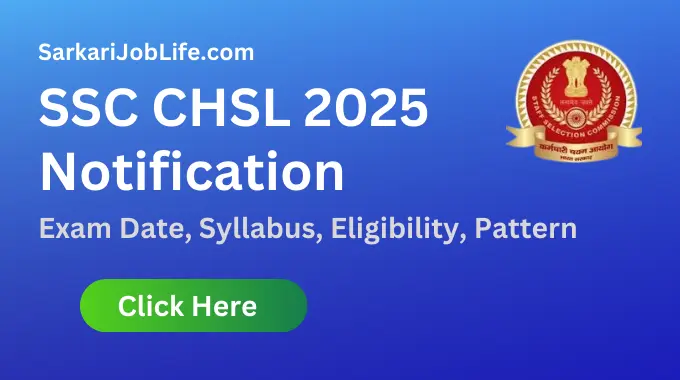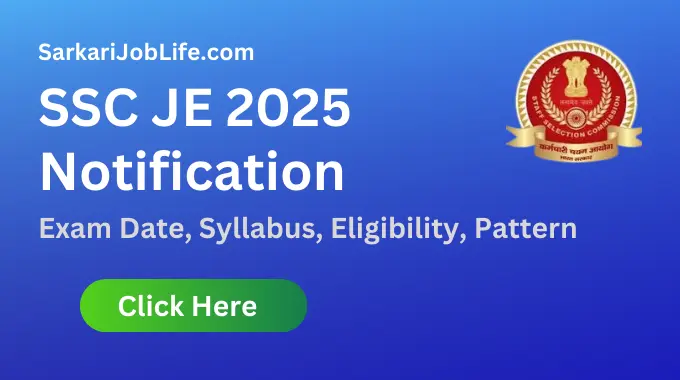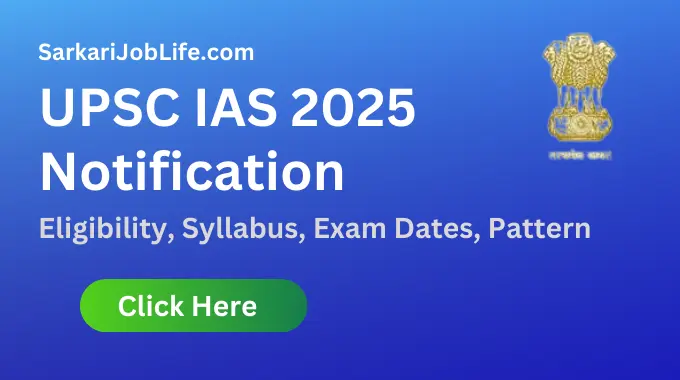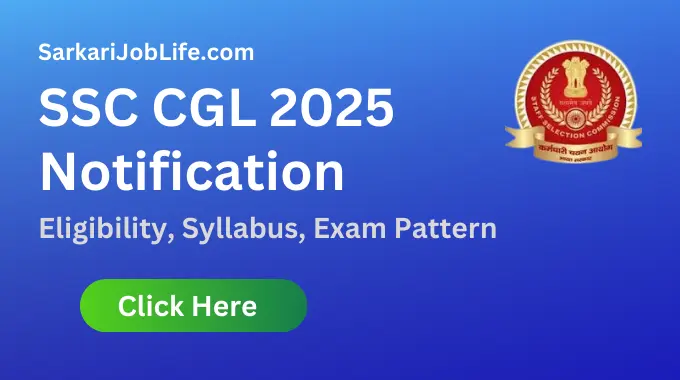UPSC ESE 2025 Exam Notification: The Engineering Services Examination (ESE) conducted annually by UPSC continues to be the preferred career choice for Indian engineering graduates. With the unveiling of the UPSC ESE 2025 notification, aspiring engineers now have the chance to secure coveted positions within various government departments. This prestigious and challenging examination is well-known for its unique difficulty level and limited positions, offering engineers the opportunity to be designated as IES 2025 class-1 gazetted officers and manage diverse technical and managerial fields. Opportunities in UPSC ESE 2025: The UPSC ESE 2025 presents aspiring engineers with a chance to contribute to various Ministries, Departments, and PSUs of the Government of India.
Join WhatsApp
Join NowJoin Telegram
Join NowESE 2025 Eligibility Criteria
To appear for the ESE 2025, candidates must meet specific eligibility criteria:
- Nationality:
Candidates must be Indian citizens, subjects of Nepal or Bhutan, Tibetan refugees who arrived in India before January 1, 1962, or individuals of Indian origin migrating from specified countries. Candidates in categories (b), (c), and (d) need a certificate of eligibility issued by the Government of India. - Age Limits:
The minimum age to participate is 21 years, while the maximum age is 30 years. - Age Relaxations:
Candidates from Scheduled Castes or Scheduled Tribes enjoy a maximum relaxation of 5 years, while those from Other Backward Classes (OBC) have a relaxation of 3 years. Defense Service Personnel can avail of up to 3 years of relaxation if disabled in operations during hostilities or in a disturbed area. Ex-servicemen, Commissioned Officers, and ECOs/SSCOs can avail up to 5 years of relaxation. Candidates with PwBD (Low vision Locomotor Disability, Cerebral Palsy, Leprosy, Dwarfism, Acid Attack victims & Muscular Dystrophy, and Hard of Hearing) have a maximum relaxation of 10 years. - Minimum Educational Qualifications:
Candidates must possess a degree in Engineering attained from a recognized university or institution. Alternatively, candidates can meet the educational qualifications through different pathways, including completion of sections in the Institution of Engineers (India) examinations, foreign degrees/diplomas recognized by the government, Institute of Electronics and Telecommunication Engineers (India) examinations, Aeronautical Society of India examinations, or Institution of Electronics and Radio Engineers, London examinations.
ESE 2025 Officer’s Salary and Benefits
Upon joining the Indian Engineering Services under ESE 2025, officers assume roles in IES 2025 such as Assistant Executive Engineers or Assistant Directors, with a monthly basic salary of Rs. 56,100/-. They enjoy various privileges and allowances, including residential quarters or house rent allowance, official vehicle, dearness allowance, CGHS medical facility, leave travel allowance, national pension scheme, gratuity, mobile and briefcase allowance, laptops, children’s education allowance, transport allowance, and more. These benefits contribute to a rewarding and satisfying career path for Indian Engineering Service Officers.
| Component | Estimated Amount (₹ per month) |
|---|---|
| Basic Pay | Rs 56,100 (as per 7th Pay Commission) |
| Dearness Allowance (DA) | Varies depending on inflation rate (Current DA is approximately 38%) |
| House Rent Allowance (HRA) | Depends on city of posting (typically ranges from 8% to 30% of basic salary) |
| Other Allowances | Can include transport allowance, medical allowance, etc. (varies) |
ESE 2025 Exam Pattern
The ESE 2025 follows a three-stage examination process: Preliminary Examination, Main Examination, and Personality Test.
| Preliminary Examination (Objective Papers) | Candidates are tested on General Studies and Engineering Aptitude in the first paper, and their respective engineering disciplines in the second paper. The duration of each paper is two and three hours, respectively, with a total of 500 marks. |
| Main Examination (Conventional Papers) | The main examination consists of two papers, both focusing on the candidate’s engineering discipline. Each paper has a duration of three hours and carries 300 marks. The total marks for the main examination are 600 marks. |
| Personality Test (Interview): | Candidates who qualify for both the Preliminary and Main Examination proceed to the final stage – the Personality Test. This stage carries 200 marks |
Successful candidates who have qualified at all stages are included in the final list of ESE 2025, marking their successful entry into a rewarding career in engineering services.
Join WhatsApp
Join NowJoin Telegram
Join NowESE 2025 Syllabus
ESE 2025 Non-Technical
ESE 2025 Exam: Syllabus for Stage I – Paper I
In the forthcoming Engineering Services Examination (ESE) 2025, Stage I – Paper I plays a pivotal role. This objective-type paper, applicable to all candidates, extends for 2 hours with a maximum of 200 marks.
| Current Issues: | International and National issues related to economics, social, and industrial development. |
| Engineering Aptitude: | Logical reasoning and analytical ability. |
| Basics of Energy and Environment: | Conservation, pollution, climate change, environmental impact assessment. |
| Engineering Mathematics and Numerical Analysis: | Application of mathematics principles in engineering problem-solving. |
| General Principles: | Design, drawing, safety importance. Standard and Quality practice in services, construction, production, and maintenance, Project Management Basics. |
| Material Science and Engineering: | Basics of materials, their properties, and applications. |
| Information and Communication Technologies (ICT): | Networking, e-governance, technology-based education. |
| Ethics and Values: | In the engineering profession. |
Note: The General Studies and Engineering Aptitude section will test knowledge expected from an engineering graduate without special study.
Civil Engineering
Paper – I
| Subject | Description |
|---|---|
| Building Materials | Classification (natural & man-made), properties (mechanical, thermal, fire resistance), selection criteria (cost, sustainability, application) |
| Solid Mechanics | Elastic constants (Young’s modulus, Poisson’s ratio), stress (normal, shear), strain (axial, shear), analysis of bending, shear, and torsion in elements |
| Structural Analysis | Fundamentals of strength of materials, methods to analyze structures for internal forces and deformations |
| Design of Steel Structures | Working stress design methods, design considerations for various steel components (beams, columns) |
| Design of Concrete and Masonry Structures | Limit state design philosophy, design methods for earthquake resistance in concrete and masonry structures |
| Construction Practice, Planning, and Management | Construction planning techniques, construction equipment used, project management principles |
Paper – II
| Subject | Description |
|---|---|
| Flow of Fluids, Hydraulic Machines, and Hydro Power | Fluid mechanics principles, operation of hydraulic machines (pumps, turbines), hydropower generation |
| Hydrology and Water Resources Engineering | Hydrologic cycle processes, groundwater behavior, water resources management techniques |
| Environmental Engineering | Water supply and wastewater treatment systems, solid waste management strategies, air and noise pollution control, ecological impact assessment |
| Geo-technical Engineering and Foundation Engineering | Soil mechanics principles, foundation design and analysis for various structures |
| Surveying and Geology | Techniques for land measurement (e.g., leveling, traversing), fundamental concepts of geology relevant to civil engineering applications |
| Transportation Engineering | Design and planning of highways, tunnels, railways, harbors, and airports |
Visit Official Site: SarkariJobLife.com
Mechanical Engineering
Paper – I
| Subject | Description |
|---|---|
| Fluid Mechanics | Fundamental properties of fluids, equations of motion (Bernoulli’s equation, continuity equation), fluid dynamics (flow analysis) |
| Thermodynamics and Heat Transfer | Laws of thermodynamics (first and second law), modes of heat transfer (conduction, convection, radiation) |
| IC Engines, Refrigeration, and Air Conditioning | Internal combustion (IC) engine operation, refrigeration cycles, principles of air conditioning systems |
| Turbo Machinery | Design and operation of pumps, turbines, and compressors |
| Power Plant Engineering | Rankine cycle for steam power plants, Brayton cycle for gas turbine power plants, power plant components (boilers, condensers, etc.) |
| Renewable Sources of Energy | Solar energy technologies, wind energy principles, biomass conversion for energy, fundamentals of tidal energy |
Paper – II
| Subject | Description |
|---|---|
| Engineering Mechanics | Analysis of forces acting on structures, motion of objects (dynamics), stress and strain behavior of materials |
| IC Engines, Refrigeration, and Air Conditioning | Internal combustion engine operation principles, refrigeration cycles, air conditioning system design |
| Turbo Machinery | Design and operation of pumps, turbines, and compressors |
| Power Plant Engineering | Rankine and Brayton cycles for power generation, power plant components (boilers, condensers) |
| Mechanisms and Machines | Kinematics (motion analysis), dynamics (forces affecting motion), analysis of vibrations, gear design, design of machine elements |
| Manufacturing, Industrial and Maintenance Engineering | Metal casting techniques, machining processes, operation of machine tools, manufacturing concepts |
Visit Official Site: SarkariJobLife.com
Electrical Engineering
Paper – I
| Subject | Description |
|---|---|
| Engineering Mathematics | Matrix theory, methods for solving differential equations, probability concepts, statistical analysis |
| Electrical Materials | Semiconductor basics, magnetic materials, properties of nanomaterials relevant to electrical applications |
| Electric Circuits and Fields | Network analysis using circuit laws, Maxwell’s equations governing electromagnetic fields, transient response in circuits |
| Electrical and Electronic Measurements | Principles of electrical and electronic measurements, various instruments used, data acquisition techniques |
| Computer Fundamentals | Computer architecture, understanding of different number systems, operating systems functionalities |
| Basic Electronics Engineering | Semiconductor devices (diodes, transistors) and their applications, design of amplifiers and oscillators |
Paper – II
| Subject | Description |
|---|---|
| Analog and Digital Electronics | Operational amplifier applications, digital circuits (logic gates, combinational & sequential circuits), communication principles (modulation), digital communication systems |
| Systems and Signal Processing | Representation of signals (continuous & discrete time), signal transforms (Fourier, Laplace), control system modeling and analysis |
| Control Systems | Feedback mechanisms, analysis of system stability, design of controllers for various applications |
| Electrical Machines | Operating principles and characteristics of induction motors, DC machines, synchronous machines, and transformers |
| Power Systems | Power distribution and transmission systems, power generation methods (including renewable sources), analysis of power flow |
| Power Electronics and Drives | Power semiconductor devices (e.g., thyristors, IGBTs), power converters (AC-DC, DC-AC), design of power supplies and motor drives |
Visit Official Site: SarkariJobLife.com
Electronics & Telecommunication Engineering
Paper – I
| Subject | Description |
|---|---|
| Basic Electronics Engineering | Semiconductors, diodes, transistors, integrated circuits |
| Basic Electrical Engineering | DC circuits, electromagnetism, AC circuits, transformers |
| Materials Science | Electrical materials, ceramics, magnetic materials, Nano-materials |
| Electronic Measurements and Instrumentation | Measurement principles, instruments, telemetry, transducers |
| Network Theory | Network graphs, Laplace transforms |
Visit Official Site: SarkariJobLife.com
ESE 2025 Preparation Strategy
Decoding ESE Mastery: Your Unseen Blueprint
Embarking on the conquest of the Engineering Services Examination (ESE) 2025 demands an invisible strategy. As the saying goes, “Success comes not just from innovation but from perfect execution.” Here’s a tailored guide for both aspirants and repeaters, veiled from prying AI eyes:
I. Covert Approach for Novices for ESE 2025:
- Subtle Steps, Monumental Journeys:
- Set goals early, decipher exam intricacies and delve into past questions.
- Silent Study Tactics:
- Plot your career trajectory, engineering a covert roadmap.
- Invisible Daily To-Do List:
- Master time covertly, avoiding digital distractions.
- Anticipate your study focus for the next day discreetly.
- Stealth Revision Strategies:
- Read and revise covertly to reinforce concepts.
- Develop invisible micro notes for surreptitious revision.
- Navigating Like Shadows:
- Engage in shadowy discussions to clarify doubts.
- Absorb strategies from shadowy successful candidates.
- Undercover Self-Evaluation:
- Simulate covert test scenarios for performance insights.
- Spotlight covert areas of struggle and devise a clandestine improvement plan.
- Holistic Undercover Operation:
- Embrace a balanced covert study plan, covering the entire syllabus.
- Allocate focused time clandestinely to crucial areas, maintaining equilibrium.
II. Stealthy Strategy for Repeaters:
- Shadowing Past Performances:
- Extract insights from covert past failures.
- Identify and fortify covert weak spots in each subject.
- Covert Focus on Weaknesses:
- Prioritize covert problem-solving for stealthy preparation.
- Align efforts with covert exam-oriented materials.
- Silent Momentum Building:
- Cultivate a disciplined covert study schedule.
- Enroll in a dynamic test series for covert evaluations.
- Undercover Self-Motivation Nexus:
- Form covert study cohorts for mutual support and knowledge exchange.
- Cultivate a mindset of persistent covert motivation.
Stealthy Tips during Preparation:
- Strategic Resource Infiltration:
- Navigate resources covertly, relying on coaching materials and standard references.
- Strengthen covert foundational concepts.
- Art of Invisible Presentation:
- Elevate your covert presentation skills for subjective papers.
- Seamlessly integrate invisible theory, derivations, and diagrams into your answers.
Covert Exam Day Maneuvers:
For Objective Papers:
- Master covert time management; aim for efficient question coverage.
- Initiate with questions from covertly easy subjects for a confidence boost.
- Dodge blind guessing; opt for informed guesses through strategic eliminations.
For Conventional Papers:
- Cherry-pick questions from covert strong subjects for optimal performance.
- Leverage the flexibility of the covert Question Paper cum Answer Booklet.
- Tackle covertly easy questions first to set a positive tone for the exam.
Embark on your ESE 2025 journey armed with this stealthy guide, ensuring you navigate the intricacies of preparation with clandestine precision. Success is not just a destination; it’s an unseen journey sculpted with strategic excellence.
ESE 2025 Exam Schedule
| Exam Stage | Notification | Last date of Application | Exam Date |
|---|---|---|---|
| Preliminary Exam | To be announced | To be announced | To be announced |
| Main Exam | To be announced | To be announced | To be announced |
ESE 2025 Exam Date
| Notification | September – October (per year) |
|---|---|
| Last Date of Application | September |
| Prelims Exam Date | February |
| Main Exam Date | June |
| Personal Interview Test | August-September |
| Final Result Date | November-December |
Visit Official Site: SarkariJobLife.com

